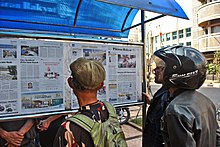
Suharso, (1912–1971) also spelled Soeharso, was an Indonesian medical doctor known for his work with disabled people and in the rehabilitation of people injured during the Indonesian National Revolution. He was declared to be a National Hero of Indonesia in 1973.
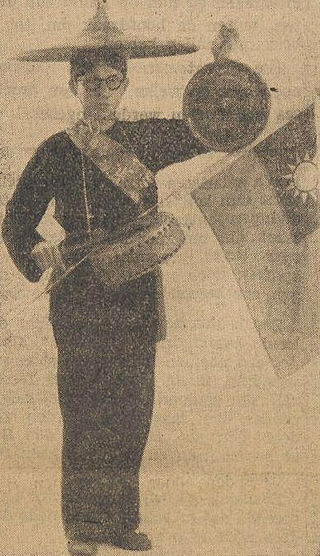
Louis Victor Wijnhamer, better known as Pah Wongso, was an Indo social worker popular within the ethnic Chinese community of the Dutch East Indies, and subsequently Indonesia. Educated in Semarang and Surabaya, Pah Wongso began his social work in the early 1930s, using traditional arts such as wayang golek to promote such causes as monogamy and abstinence. By 1938, he had established a school for the poor, and was raising money for the Red Cross to send aid to China.
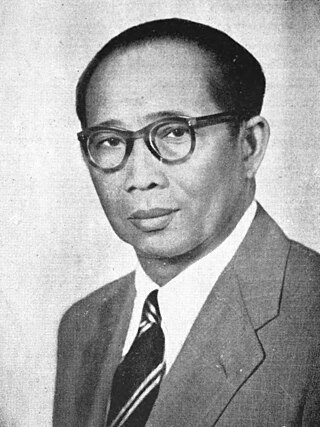
Sidik Djojosukarto was an Indonesian politician who served as chairman of the Indonesian National Party (PNI) from 1950 until his death. As PNI chairman, he was revered by all party factions, and was the closest to being an "authentic party hero."

De Preangerbode was a Dutch language newspaper published in Bandung, Preanger Regencies Residency, Dutch East Indies from 1896 to 1957. After 1923 it was renamed Algemeen Indisch Dagblad de Preangerbode.

Dra. Augustine Magdalena Waworuntu, was an Indonesian politician who became the first post-federal Indonesian mayor of Manado and the first female mayor of Manado.
Parada Harahap was an important journalist and writer from the late colonial period and early independence era in Indonesia. In the 1930s, he was called the "king of the Java press". He pioneered a new kind of politically neutral Malay language newspaper in the 1930s which would cater to the rising middle class of the Indies.

Algemeen handelsblad voor Nederlandsch-Indië was a Dutch language newspaper which was published in Semarang, Dutch East Indies from 1924 to 1942.
Jacobus Rudolph Razoux Kühr, commonly known as J. R. Razoux Kühr or Jack Razoux Kühr was an Indo civil servant and businessman from the Dutch East Indies largely remembered for being one of the first editors of the popular Chinese Indonesian newspaper Sin Po.
Raden Pandji Wirasmo Notonindito, often referred to as Dr. Notonindito, was a Javanese accountant, intellectual and politician in the Dutch East Indies. He founded the short-lived Indonesian Fascist Party in 1933.

Saadah Alim (1897-1968) was a writer, playwright, translator, journalist and educator in the Dutch East Indies and in Indonesia after independence. She was one of only a handful of Indonesian women authors to be published during the colonial period, alongside Fatimah Hasan Delais, Sariamin Ismail, Soewarsih Djojopoespito and a few others. She is known primarily for her journalism, her collection of short stories Taman Penghibur Hati (1941), and her comedic play Pembalasannya (1940).

Louis Johan Alexander Schoonheyt (1903-1986), commonly known as L. J. A. Schoonheyt, was a Dutch medical doctor, writer, and supporter of the National Socialist Movement in the Netherlands before World War II. From 1935 to 1936 he was the camp doctor at the Boven-Digoel concentration camp in New Guinea, Dutch East Indies, and is mostly known today for the book he wrote about his experiences there, Boven-Digoel: Het land van communisten en kannibalen (1936). His praise for the conditions in the camp earned him the ire of the internees, Indonesian nationalists, and Dutch human rights advocates; E. du Perron called him a 'colonial bandit', while many internees burned his book after reading it in the camp.
Yap Goan Ho was a Chinese Indonesian translator, businessman, bookseller, and publisher based in Batavia, Dutch East Indies. In the 1880s and 1890s, he was one of the first Chinese Indonesians to own a printing press and the first to publish Chinese language novels in Malay language translations.

Paul Alex Blaauw, usually known as P. A. Blaauw, was an Indo politician, lawyer, and member of the Dutch East Indies Volksraad representing the Indo Europeesch Verbond from the 1920s to the 1940s. During the period of transition to Indonesian independence and the 1949 Dutch–Indonesian Round Table Conference he was a leader of the largest faction advocating for the rights of Indos.
Lintong Mulia Sitorus, in pre-1948 spelling Lintong Moelia Sitoroes, was an Indonesian intellectual, writer, translator, lawyer, and Socialist Party of Indonesia politician. He was a key follower of the independent-minded Indonesian nationalist Sutan Sjahrir in the 1940s and 1950s.
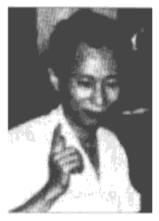
Injo Beng Goat was a Chinese Indonesian journalist, lawyer, and political activist of the late Dutch East Indies and early independence era in Indonesia. He was editor-in-chief of Keng Po, one of the largest newspapers of the early independence period, until 1958.

Phoa Tjoen Hoat, who also published under the name Th. H. Phoa Sr., was a Chinese Indonesian, Malay language journalist, translator and newspaper editor active in the Dutch East Indies in the early twentieth century.
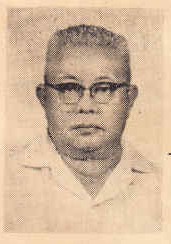
Oen Tjhing Tiauw was a Chinese Indonesian writer, politician and cultural figure active in the Dutch East Indies and Indonesia from the 1920s to the 1970s. From the 1930s onwards he was sympathetic to Indonesian nationalism and worked towards independence from the Dutch as a member of the Partai Tionghoa Indonesia and later the Socialist Party of Indonesia.
Abdul Rasjid Siregar gelar Mangaradja Mahkota Soeangkoepon, commonly known as Dr. Abdul Rasjid, was a politician and physician in the Dutch East Indies. He was elected or appointed to the Volksraad from 1931 to 1942, during which time he sat with the Indonesian nationalist faction. During the 1930s, he became convinced that public health and cooperation with traditional healers should be central to the mission of physicians in the Indies.
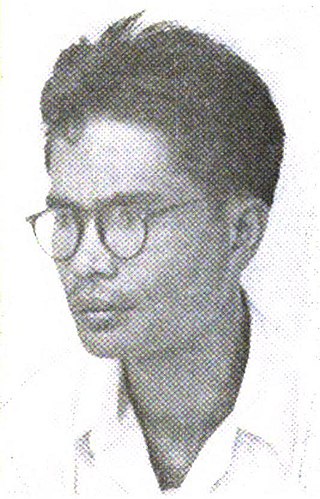
Peris Pardede (1918–1982) was an Indonesian politician who was a key figure in the Communist Party of Indonesia during the Sukarno era. He held various roles, including editor of the party magazine Bintang Merah, representative of the party in the Provisional House of Representatives and the House of Representatives throughout the 1950s and early 1960s, and Politburo candidate in 1965. After the party was banned in 1965, he was put on trial and spent his final decades as a political prisoner of the Suharto regime.
